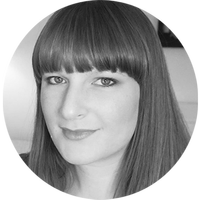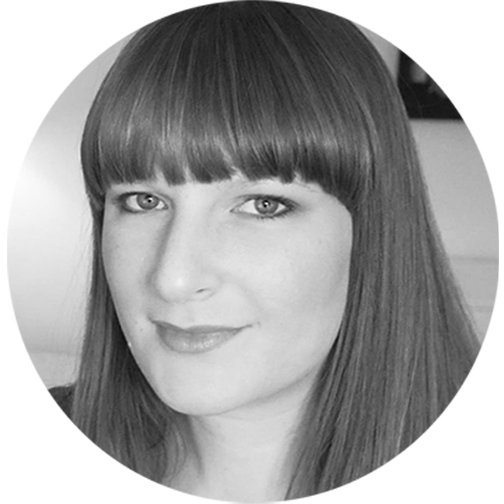Stop talking to your kids about politics
Young children deserve to remain blissfully ignorant of our political nightmare


A free daily email with the biggest news stories of the day – and the best features from TheWeek.com
You are now subscribed
Your newsletter sign-up was successful
Once upon a time, parents were content to read their kids books about talking pigs and rabbits that wear cute blue jackets. If politics was present at all, it was only under cover of riddles and absurdity, in stories like Dr. Seuss' The Lorax — a commentary on capitalism and environmental destruction.
But now, subtlety and metaphors are out.
The Atlantic reported recently that more and more liberal parents are buying picture books with explicitly politically progressive messages. There's Dreamers, which is full of inspiring messages about immigration, and the best-selling A Is for Activist, aimed at parents eager to raise social justice warriors.
The Week
Escape your echo chamber. Get the facts behind the news, plus analysis from multiple perspectives.

Sign up for The Week's Free Newsletters
From our morning news briefing to a weekly Good News Newsletter, get the best of The Week delivered directly to your inbox.
From our morning news briefing to a weekly Good News Newsletter, get the best of The Week delivered directly to your inbox.
While I'm all for molding tolerant kids, I can't wholeheartedly cheer the success of these woke bedtime stories. I'm worried that there's a trend toward telling our children too much about politics too young, when they're not equipped to process it emotionally or intellectually.
I first noticed the uptick in political awareness for the very young during the 2016 presidential election. Parents in my progressive Brooklyn neighborhood were discussing their Hillary hopes and dreams, not just with their age-appropriate offspring, but with their preschool and early-grade kids. And when Donald Trump was elected president, Democratic voters' devastation and trauma rubbed off on these children, who'd been intimately apprised of this historic race between good and evil.
That fact that some high schoolers struggled to deal with the election result was well reported. But little kids, specifically those who knew too much, were also reeling, and I found this troubling.
It's true that we need to educate our children about the stuff that can directly harm them. We need to tell them not to talk to strangers, and that no one other than a parent or a doctor is allowed to look in their underwear. We also need to provide them with a moral framework and teach tolerance, and books are a great way to do this. But it's a small hop from here to giving young kids anxiety-inducing information they're not ready to understand.
A free daily email with the biggest news stories of the day – and the best features from TheWeek.com
After the 2016 election, some parents I spoke with were so hysterically wrapped up in it all, they actually seemed to delight in telling everyone how devastated their offspring were when they found out Trump had won.
A couple of moms whose kids were taking the same class as my then nearly 4-year-old asked me how she was dealing with the result. At first I thought they were joking. When I realized they weren't, I told them I actually hadn't mentioned the election to my daughter. They looked at me like I was an alien. These folks, it seemed, had been sitting their kids in front of Rachel Maddow every night for the duration of the campaign. One woman's child, who was in pre-K, apparently cried when she found out Trump had won. So, I imagined, off this kid went to school the morning of Nov. 9, 2016, woke but living in a nightmare where the big orange wolf ate up sweet Grandma Hillary and stole her nice white house.
Why do parents feel the need to burden their kids with this kind of bleakness?
For some, it's about bragging rights. These days it's not enough to boast about your children learning to read and write early; you also need to talk up their emotional IQ and how able they are as social scientists.
I suspect these same parents would have been aggravated and even a little embarrassed if their kid had simply shrugged at the news and then happily skipped to school. Or if their kids had been upset about something developmentally appropriate, like another child pulling their hair or stealing a toy. Yet, these are the kind of trifles that, if parents are doing their job right, should bother small children.
So next time you're tempted to tell a young child that the apocalypse is nigh, ask yourself if it's really fair to impart complicated, scary information to a kid who can't even tie her own shoes. I certainly don't want my 5-year-old fretting about "silly Donald Trump" (that's what she calls him). Or, for that matter, school shootings, other people's recently dead relatives, drowning refugees, or children who are separated from their parents at the U.S. border. For now, it's enough that our kids know they're lucky to have food and toys, a nice bedroom, and a loving family, and that not everyone is so fortunate. I want to forge them the happiest childhood possible, even if it means going full on Life Is Beautiful for the few years they can be easily hoodwinked.
Knowing when to impart a little more about the real world is difficult. With politics and tragedy, I think we need to adopt a similar approach to other big life reveals, like sex and admitting there's no Santa: Tell kids when they ask. That's when they're likely ready to know more. And then, perhaps, don't say, "There's an evil man in charge and we're all doomed!" Frame it with hope. Children need our optimism, even if we're faking it.
-
 How to Get to Heaven from Belfast: a ‘highly entertaining ride’
How to Get to Heaven from Belfast: a ‘highly entertaining ride’The Week Recommends Mystery-comedy from the creator of Derry Girls should be ‘your new binge-watch’
-
 The 8 best TV shows of the 1960s
The 8 best TV shows of the 1960sThe standout shows of this decade take viewers from outer space to the Wild West
-
 Microdramas are booming
Microdramas are boomingUnder the radar Scroll to watch a whole movie
-
 The billionaires’ wealth tax: a catastrophe for California?
The billionaires’ wealth tax: a catastrophe for California?Talking Point Peter Thiel and Larry Page preparing to change state residency
-
 Bari Weiss’ ‘60 Minutes’ scandal is about more than one report
Bari Weiss’ ‘60 Minutes’ scandal is about more than one reportIN THE SPOTLIGHT By blocking an approved segment on a controversial prison holding US deportees in El Salvador, the editor-in-chief of CBS News has become the main story
-
 Has Zohran Mamdani shown the Democrats how to win again?
Has Zohran Mamdani shown the Democrats how to win again?Today’s Big Question New York City mayoral election touted as victory for left-wing populists but moderate centrist wins elsewhere present more complex path for Democratic Party
-
 Millions turn out for anti-Trump ‘No Kings’ rallies
Millions turn out for anti-Trump ‘No Kings’ ralliesSpeed Read An estimated 7 million people participated, 2 million more than at the first ‘No Kings’ protest in June
-
 Ghislaine Maxwell: angling for a Trump pardon
Ghislaine Maxwell: angling for a Trump pardonTalking Point Convicted sex trafficker's testimony could shed new light on president's links to Jeffrey Epstein
-
 The last words and final moments of 40 presidents
The last words and final moments of 40 presidentsThe Explainer Some are eloquent quotes worthy of the holders of the highest office in the nation, and others... aren't
-
 The JFK files: the truth at last?
The JFK files: the truth at last?In The Spotlight More than 64,000 previously classified documents relating the 1963 assassination of John F. Kennedy have been released by the Trump administration
-
 'Seriously, not literally': how should the world take Donald Trump?
'Seriously, not literally': how should the world take Donald Trump?Today's big question White House rhetoric and reality look likely to become increasingly blurred
